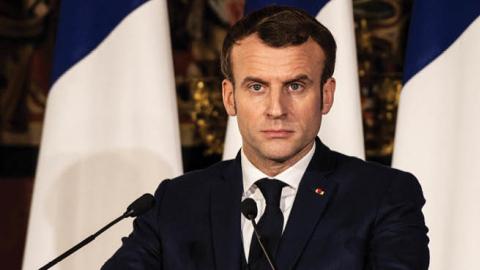If you happened to spend last week hiding under a large rock or watching the evening news, you may be unaware that representatives of Bahrain, the United Arab Emirates, and Israel spent last Tuesday morning signing the historic Abraham Accords on the South Lawn of the White House. As they did so they bathed in the satisfied glow of President Donald J. Trump, who, having broken the shibboleths of the Middle East peace processes, forged a major breakthrough.
Trump, the china-shop bull, succeeded in the Middle East where his predecessors had met only with frustrated ambitions by testing an unconventional theory: that U.S. allies become stronger when they are exposed to the invigorating effects of outside power. He earned a Nobel Peace Prize nomination in the bargain.
“Let someone else fight over this long-bloodstained sand,” said President Trump last October, channeling Peter O’Toole playing T. E. Lawrence in a nod to the history of the Middle East. The Gulf Arabs, fearing who that “someone else” might be, took the cue and hedged against an American pullback from the region by fortifying their coalition against Iran and aligning with the strongest regional player. Thus did the cri de coeur of solidarity with the Palestinians fade against the military and technological allure of Israel.
That this development was unimaginable — in fact, it was deemed impossible — even four years ago makes it no less remarkable. One can hardly blame President Trump, then, for applying the same strategic logic to Europe that has won him laurels from our allies in the Middle East. Unfortunately for his administration, however — and for the cause of transatlantic stability — Europe’s strategic realities are proving harder to shatter than those of the Middle East. His strategy there is being thwarted not by the comparative resilience of Europe’s china shop but by the competing ambitions of another bull, French president Emmanuel Macron.
Unlike in the Middle East, where the Abraham Accords brought together U.S. allies under Washington’s direction, Macron envisions a European architecture more free from American influence. Thus Trump’s attempts to run his playbook in Europe — by expressing ambivalence to collective defense and initiating a troop drawdown from Germany — have given Macron an opening to pursue his own vision.
In May 2017, Macron celebrated his presidential victory with the European Union’s anthem and flanked by EU flags. Ever since, he has sought to advance a vision of so-called European strategic autonomy, which enlists German economic power in the service of French strategic leadership at the EU. Paradoxically, the United Kingdom’s departure from the EU brought relatively little heartache for Macron because it removed a powerful opponent to his vision of continental freedom.
That leaves NATO as the most serious impediment to Macron’s designs. Unsurprisingly, he alone among Europe’s leaders has regularly criticized the alliance, memorably diagnosing its “brain death” last November. Trump’s capricious and contemptuous view of Western Europe has been central to Macron’s argument, but the French leader cannot openly challenge the United States, anchor of the West, and hope to succeed. Instead, he has sought to weaken American influence by quarreling with Turkey in its place. Macron regularly trumpets Turkey’s transgressions in part to send a message to Europe: NATO is an unreliable alliance; better to build an EU alternative. In the months to come, look for tensions between France and Turkey to flare time and again.
An autonomous Europe without the guiding hand of Washington, however, would be prone to dithering, duplication, and drift — and vulnerable to division by a revanchist Russia and emerging China. Moreover, France is unable to match the United States as the continent’s security guarantor, especially for those frontline countries that Russia is menacing and China is courting. But France is powerful enough to launch uncoordinated initiatives, as seen in the eastern Mediterranean, that strain the cohesion of NATO.
President Trump’s large investments in Eastern Europe have effectively blocked Macron’s vision from bearing immediate fruit. These Europeans see no alternative to an American-led defense architecture. But if the Trump administration wishes to weave individual partners into a tapestry of alliances, from the Middle East to Europe, then it must stand vigilant over NATO, lest Macron tear it in two. The West is in the opening stages of a decades-long competition with China and Russia. A little exposure can be sobering, but now is the time for transatlantic solidarity, not separation.
Read in National Review















